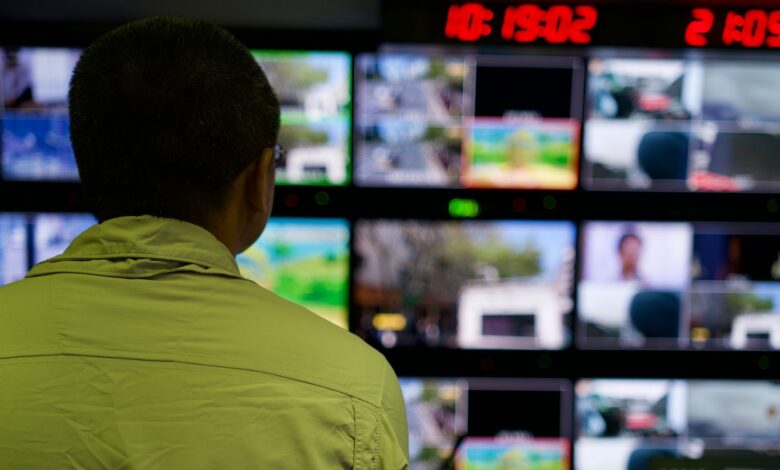
The death of Albert Ojwang in police custody has sparked a significant controversy in Kenya, with both Safaricom and the Communications Authority of Kenya (CA) issuing statements denying involvement in providing data that allegedly led to his tracking and arrest. These denials raise critical questions about how Kenyan police actually obtain location data and whether current surveillance practices operate within legal frameworks.
The Safaricom Surveillance Concern:
This is not the first time Safaricom has faced allegations regarding police surveillance assistance. In October 2024, a Daily Nation exposé alleged that Kenya’s security agencies had gained access to mobile phone customers’ sensitive call data records and location information, potentially helping them track suspects while violating privacy rights. The investigation claimed that Safaricom’s internal systems allowed Kenyan authorities to bypass court orders and monitor citizens in real time.
Safaricom’s response then mirrored their current stance, with the company stating: “We respect our customers’ privacy and adhere strictly by the country’s data protection laws. As such we do not share any customer data unless explicitly required of us via a court order”. The telecom giant also clarified that Call Data Records (CDRs) “do not show any live location and movements of customers but are generated after a call is terminated”.
However, the Daily Nation investigation uncovered instances where CDRs presented to courts showed irregularities and inconsistencies, raising concerns over potential data manipulation. Anonymous sources claimed that access to CDRs could be obtained “without a formal process,” suggesting that procedural safeguards required by law were being circumvented.
Kenya’s Declining Internet Freedom: A Broader Context
The Albert Ojwang case occurs against a backdrop of Kenya’s alarming regression in internet freedom. The 2024 Londa Digital Rights and Inclusion Report flagged Kenya for two significant government-imposed internet disruptions in 2024, placing the country among nations that deliberately shut down internet access to control digital communication.
These disruptions included nationwide internet throttling during anti-tax protests on June 25-26, 2024, reducing speeds to just 42% of normal connectivity, and blocking access to Telegram during KCSE exams in November. The report noted that “Kenya has retrogressed regarding promotion of internet access” and scored the country 28 out of 60 in their compliance index.
The pattern extends beyond internet shutdowns to include what civil society organizations describe as systematic suppression of digital expression. Seven Kenyan and regional organizations have filed constitutional petitions against state agencies and telecom providers over repeated internet shutdowns, with courts issuing conservatory orders to prevent further unlawful disruptions.
The Legal and Technical Contradiction
The statements from Safaricom and CA create a significant contradiction that demands examination. If both organizations maintain they do not provide location data to police without court orders, this raises two troubling possibilities: either police are accessing their systems illegally, or law enforcement agencies are misrepresenting how they obtain tracking information.
Safaricom’s statement emphasizes that they “have always been safe and secure in how (they) handle (customer) data, and (that they) will continue to do so now and in the future. Similarly, CA categorically distances itself from “any involvement whatsoever on this matter”.
Yet the Albert Ojwang case suggests sophisticated tracking capabilities that led to his arrest based on social media activity. His Twitter account was reportedly deleted by police hours after his arrest, indicating both the ability to track his online presence and subsequently control his digital footprint.
The Mystery of Police Tracking Capabilities
The question of how Kenyan police actually track individuals becomes more pressing when considering the technical requirements for locating someone based on social media activity. Mobile network operators maintain extensive infrastructure that can theoretically provide location data through cell tower triangulation, but this typically requires specific legal authorization.
Kenya’s earlier push for mandatory IMEI registration was an opportunity for additional surveillance possibilities. But the push didn’t take off as planned in January 2025.
The Optimus 3.0 Development: MPs and DCI Pushing for More Surveillance Capabilities
Adding to surveillance concerns, Kenyan MPs are reportedly budgeting KES 150 million for the DCI to purchase Optimus 3.0, a system designed to track social media users and their devices across platforms. This development suggests a significant expansion of state surveillance capabilities, potentially explaining how cases like Albert Ojwang’s tracking could occur without direct telecom provider cooperation.
The timing of this budget allocation, coinciding with the Ojwang case, raises questions about whether existing surveillance systems are already operational or if authorities are using alternative methods to track social media users.
Conclusion: The Need for Accountability
The Albert Ojwang case exposes critical gaps in Kenya’s digital rights framework. Whether police are accessing telecom data illegally or using undisclosed surveillance technologies, the current lack of transparency undermines constitutional protections for privacy and freedom of expression.
The contradiction between official denials and apparent tracking capabilities highlights broader concerns about digital rights in Kenya. The lack of transparency around surveillance methods, combined with documented internet freedom regressions, suggests a concerning pattern of state overreach.





